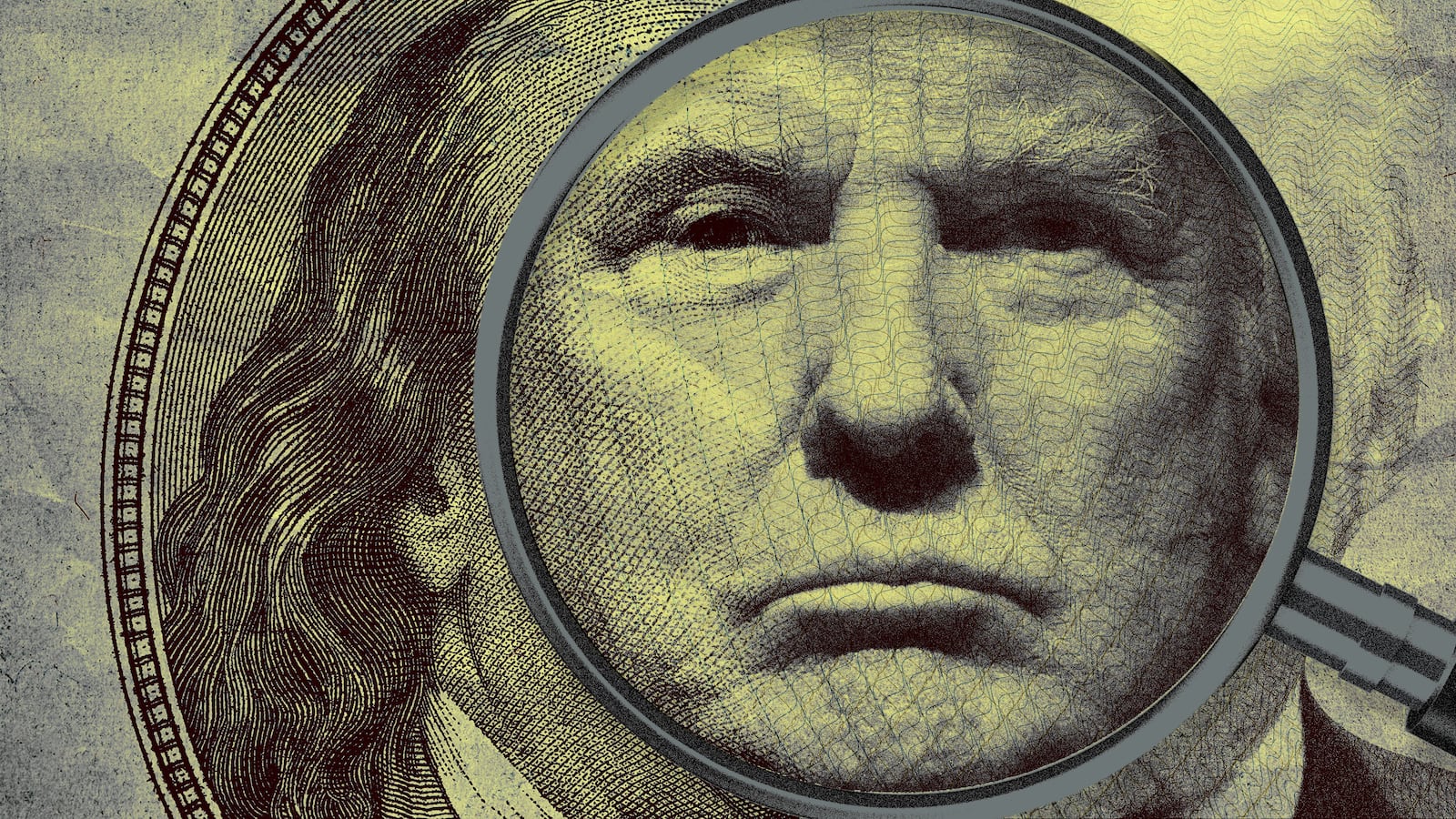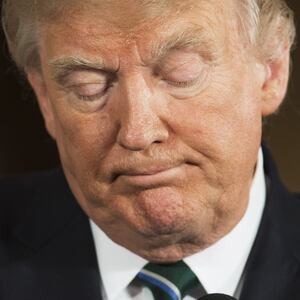The House intelligence committee's incoming Democratic majority is taking its first steps to follow Donald Trump's money, The Daily Beast has learned.
The committee is looking to hire money-laundering and forensic accounting experts, three sources familiar with the plans confirm to The Daily Beast. One Democratic committee office said the purpose of the potential new hires is to examine unanswered financial questions about Trump and Russia, but their work could apply broadly across the panel’s intelligence oversight.
This indicates that likely chairman Adam Schiff’s stated interest in the intersection of financial crimes and intelligence threats isn’t just talk.
Schiff, a California Democrat, has said publicly and privately that he’s interested in President Donald Trump’s relationship with Deutsche Bank, the German financial giant that has been scorched for its connections to money-laundering. When other lenders were loath to lend money to Trump in the 1990s, Deutsche Bank stepped up and spotted him tons of cash. The president may still owe the bank up to $175 million, according to MarketWatch. Bringing on staffers with expertise in financial crimes would position the committee to pursue those questions.
A spokesperson for Schiff did not immediately respond to a request for comment.
Mieke Eoyang, vice president of the Third Way think tank’s National Security Program and former staffer on the committee, told The Daily Beast that having a deep understanding of financial crimes will help the committee effectively oversee the sprawling U.S. intelligence agencies.
“I think it’s really important that people understand how much Russia relies on money-laundering and financial influence as part of its attempts to undermine Western interests throughout the world,” she said. “It’s one of those things where you really need to check that kind of activity. At the same time, you may have an administration that’s putting pressure on its own people not to look too hard at it, so you’d want more congressional oversight there.”
Under the control of Republican Chairman Devin Nunes, partisan tensions ripped the committee asunder. Early in 2017, the committee set out to investigate Russian meddling in the previous year’s election. But that turned into a partisan brawl, with Nunes allying himself closely with the White House. A lawyer for Michael Cohen––then still in the president’s good graces––received inside information from the probe, which ended earlier this year. Democrats said Nunes hobbled it to protect partisan interests. Trump, for his part, told Fox & Friends that Nunes deserves “the Medal of Honor.”
Now that the power has shifted, the committee faces a daunting challenge: Renewing bipartisan cooperation, rebuilding trust from the Intelligence Community, and doing muscular oversight of the White House’s relationship with America’s spies.
Another challenge will be managing all of this without butting heads with the other committees equally eager to investigate the president’s financial dealings. Rep. Maxine Waters, expected to chair the House Financial Services Committee in the new Congress, has telegraphed interest in investigating Trump’s finances, including dealings with legally troubled banks.
Eoyang said some friction is to be expected.
“There’s always tension in jurisdiction between HPSCI [the House Permanent Select Committee on Intelligence] and other committees,” she said. “When the chamber is functioning well, they work those things out. HPSCI’s going to be more interested in sources and methods and resourcing and understanding the counterintelligence aspects of this. Maxine Waters and her staff will work with HPSCI to deconflict some of those things. And it may be that when they’re working together, they’re multiplying the resources on the problem instead of duplicating the resources.”







